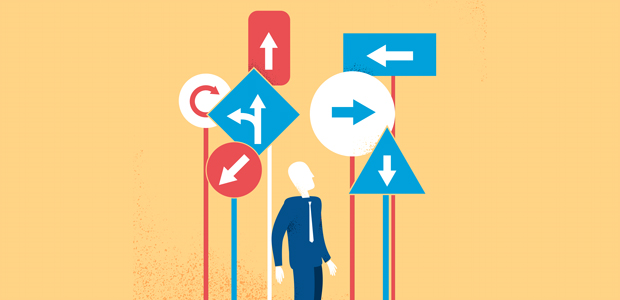
Looking Back to Move Forwards
Like so many other business owners, my entrepreneurial journey since the start of the pandemic has been unpredictable, with plenty of twists and turns to navigate along the way.
By reflecting on what went well, along with the things that didn’t go quite so well, I am able to identify how I can continue to develop my business moving forwards, as we slowly work our way out of this pandemic. My intention is that by sharing my lessons with you, you will then be encouraged to reflect on your own entrepreneurial journey since the start of the pandemic, and identify how you can build on existing practice, or incorporate new ways of doing things, in order to move forwards with your business.
Lesson 1: Embrace Innovation
I think the biggest lesson I have learnt so far is that innovation is essential! Innovation is just as relevant to small businesses and start-ups as it is to large, established corporations. It doesn’t have to be an overly complex exercise - it can be simply about making improvements to existing products or services. Or it can be about finding new processes to work more efficiently. Innovation can also be about tweaking your existing business model to create more value for your customers, as well as be about engaging with stakeholders in new, impactful ways.
Since the start of the pandemic, like many other founders, I have had to embrace the world of Zoom, and transfer all my activities online. As someone who can be considered a late adopter of tech, I have experienced a steep learning curve over the past 14 months. Although Zoom has enabled me to continue serving my community with little interference, it is not my most notable innovation. In my eyes, my most important innovation to date has been a new learning material I have created - The Business Clarity Canvas®. Whilst I am yet to commercialise this fully, I have already created a business support initiative centred around the canvas, and intend to continue innovating new products and services featuring it over the next year. I have also protected it to an extent - with two registered trademarks. (I could have protected it with one, but made a mistake with my first application, so decided to register a second trademark to cover the things I had omitted in my first application!)
Admittedly, successful innovation doesn’t happen over night - it may take time to implement your new ideas, and may come at a financial cost initially, before you start to reap the benefits. However, if done well, I strongly believe that innovation can have a powerful effect on your competitive edge, profitability and business resilience. I strongly believe that innovation is something that every founder should incorporate into their growth strategy - whatever the age or size of their business.
Lesson 2: Report Your Inner Critic to Your Peers
It has taken me a long time to realise this, but your inner critic is a bully! They can play the meanest mind games on you. As a startup adviser, I see many founders regularly struggle with self-doubt, and this is something I also suffer from at times, as a founder. I think the pandemic has also played a fundamental role in accentuating these feelings of self-doubt.
Based on what has worked for me - in the hope that it may work for you too - I would recommend you reach out to your peers, and tell them exactly what your inner critic is saying to you. I recently did this, after having delivered a workshop for a client. I had been frustrated with my performance - even though I was familiar with the subject matter, and had delivered that particular workshop a number of times in person and online. However, my pesky inner critic couldn’t stop finding things to criticise about my performance. This time, I couldn’t seem to shake off the voice of my inner critic, so I ended up telling a peer of mine about what my inner critic was saying to me. She was actually the person who had commissioned me in the first place, and who was responsible for organising the event. She immediately laughed at me (in a friendly way!), when I told her how badly I thought the workshop had gone. She told me that the workshop had been one of the most well attended and well reviewed workshops they had hosted during their event series. I was pleasantly surprised by her feedback, and undoubtedly encouraged by it. Most importantly, it made me realise that the best way to tackle your inner critic is to tell others what your inner critic is saying to you. Treat your inner critic as you would a bully - report them!
Lesson 3: Nurture Your Community
The final lesson I would like to share with you is that of community. During the pandemic, it has become strikingly clear to me that community is vital - not only for our personal wellbeing but also for business resilience.
As the Founder of Thrive - a social enterprise specialising in business support for female founders, social entrepreneurs and women in business - since the start of the pandemic, I have dedicated more time and resources to nurture the Thrive Community (the name I use to collectively describe my service users). I have done this in a number of ways. For example, I have revised my purpose and values, and communicated those with my community. I have embraced email marketing and used this as my medium to communicate regularly and consistently with my audience. I have also crafted new processes to listen to my community - inviting their feedback and gathering more data about them and their business needs. (I originally collected this data for a funder’s requirement. However, after realising how useful it was, I have continued to collect information from the community on a regular basis). This has been essential in helping me shape my events and innovate new business support initiatives. I have also built strategic partnerships with those who reflect the values of Thrive, and with whom I can create activities which are beneficial to everyone involved. During the pandemic, this has resulted in me co-founding a virtual conference for female founders in partnership with Absolute Alchemy, and hosting a workshop series in partnership with Hatch. And later this year, I look forwards to hosting a new series of learning opportunities in partnership with Enjoolata Foundation. Finally, in order to encourage interaction between members of the Thrive community, I have incorporated opportunities for members to offer each other peer support during the Thrive events. This has enabled community members to share experience and advice with each other, in turn enabling them to make meaningful connections and build relationships upon strong foundations.
Moving Forwards
I always find it really helpful - and healthy - to reflect on what has happened in the past, before making plans for the future. As I look to the future beyond the pandemic, I will endeavour to keep these three lessons in mind, when planning the next phase of Thrive. I hope you too can benefit from the lessons I have shared here, and I now invite you to carve some time out of your day to look back and reflect on your own lessons from the last 14 months. Once you do, you will be much better informed for when you make your plans to move forwards.
If you would like to learn more about how my social enterprise - Thrive - supports female founders to build resilient, small businesses, visit our events page and join our email list.


